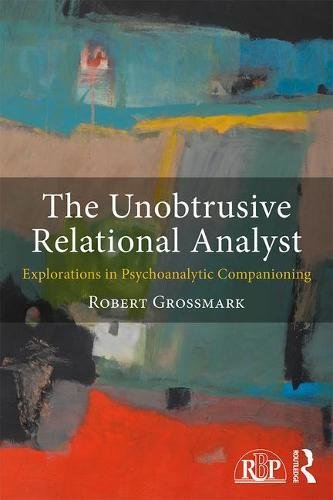

Most ebook files are in PDF format, so you can easily read them using various software such as Foxit Reader or directly on the Google Chrome browser.
Some ebook files are released by publishers in other formats such as .awz, .mobi, .epub, .fb2, etc. You may need to install specific software to read these formats on mobile/PC, such as Calibre.
Please read the tutorial at this link. https://ebooknice.com/page/post?id=faq
We offer FREE conversion to the popular formats you request; however, this may take some time. Therefore, right after payment, please email us, and we will try to provide the service as quickly as possible.
For some exceptional file formats or broken links (if any), please refrain from opening any disputes. Instead, email us first, and we will try to assist within a maximum of 6 hours.
EbookNice Team

Status:
Available0.0
0 reviewsPsychoanalysts increasingly find themselves working with patients and states that are not amenable to verbal and dialogic engagement. Such patients are challenging for a psychoanalytic approach that assumes that the patient relates in the verbal realm and is capable of reflective function. Both the classical stance of neutrality and abstinence and a contemporary relational approach that works with mutuality and intersubjectivity, can often ask too much of patients.
The Unobtrusive Relational Analyst introduces a new psychoanalytic register for working with such patients and states, involving a present and engaged analyst who is unobtrusive to the unfolding of the patient’s inner world and the flow of mutual enactments. For the unobtrusive relational analyst, the world and idiom of the patient becomes the defining signature of the clinical interaction and process. Rather than seeking to bring patients into greater dialogic relatedness, the analyst companions the patient in the flow of enactive engagement and into the damaged and constrained landscapes of their inner worlds. Being known and companioned in these areas of deep pain, shame and fragmentation is the foundation on which psychoanalytic transformation and healing rests.
In a series of illuminating chapters that include vivid examples drawn from his work with individuals and with groups, Robert Grossmark illustrates the work of the unobtrusive relational analyst. He reconfigures the role of action and enactment in psychoanalysis and group-analysis, and expands the understanding of the analyst’s subjectivity to embrace receptivity, surrender and companioning. Offering fresh concepts regarding therapeutic action and psychoanalytic engagement, The Unobtrusive Relational Analyst will be of great interest to all psychoanalysts and psychoanalytic psychotherapists.